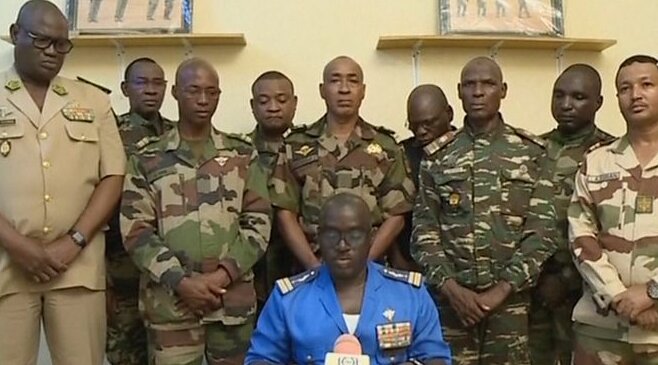Niger coup wake-up call on need for democracy

Africa and specifically West Africa is experiencing a spate of coups which from a critical tradition standpoint are not really a threat to democracy, but a wake-up call that any system of governance must serve the governed.
Mali, Bukina Faso, Guinea and now Niger and it does appear it will soon spiral into a bandwagon effect. African countries are heterogeneous, underdeveloped and with such dispensations, democratic governance has been exclusionary with statements such as shareholders suggesting exclusionary developments agenda and an entrenched culture of endemic corruption and financial impropriety among the top political elites.
In Niger, Guinea, Bukina Faso and Mali just like in many heterogenous African countries issues of contested boundaries, ethnicity, corruption, nepotism and what is emerging as the most critical – client-patron relations, with former colonial powers such as Britain, France, Spain, and Italy are having an overbearing influence on African democracies.
In Francophone West Africa, it is this client-patron relationship with the colonial master that has emerged as the most critical issue. Democracy seems to be serving the master at the exclusion of the majority poor.
Granted, liberal democracy was not conceptualised in Africa and other than the problems of contextualisation, the six-decade failure of democracy to address the plight of the poor suggest that the West insistence on democratically elected regimes might be serving their post-colonial interests not African’s.
In the recent mass demonstrations in Kenya, for instance, one realises that the inalienable rights that Western nations enjoy in holding the political elites accountable and to hold independent opinions are either non-existent in African democracies or are trampled upon by the so called democratically elected leaders. Simply put, if democracy is not benefiting the majority poor in African countries, then they have the right to self determination and to decide the system of governance that ensures resources benefit them.
In Kenya today, we flaunt democracy, but six decades after independence we still have the poor in the mass majority and a system that coerces critical and divergent voices into the gravy train, soil their hands and makes them accomplices in looting and plunder.
This is pretty the same as what the West has succeeded to do in most African countries. Why, for instance, should they push Africa to adopt that which they are not pushing in the oil rich Gulf states? To situate all these within the current context, the voices of the people must be heard and even as the bipartisan talks between Kenya Kwanza and Azimio take shape in Bomas, we must celebrate the fact that the two sides are on the same page – no handshake and no power sharing. The leadership is agreeable on the interest of the people rather than political deal brokerage and it is imperative that the ordinary Kenyans led by different civil society organisations are centrally enjoined in the convention.
The place of the people is critical because, just like in West Africa, democracy in Kenya has failed to bring meaningful changes and genuine improvements and the citizenryhas begun to lose faith in it.
African strongmen who have tried to cling to power to protect their privileged positions have over the years used elections to construct legitimisation, subordination and hegemony, a process that by both design and default has reproduced structures that privileges the elites at the expense of the masses.
It is about time we as the people took the self-determination ideal envisioned in Article One of the Constitutions in our hands and discussed inclusivity, representation and how we can get into this bright space where elections are not divisive and the elected transform the society by elevating the majority poor from poverty.
— The writer is a PhD candidate in political communication











